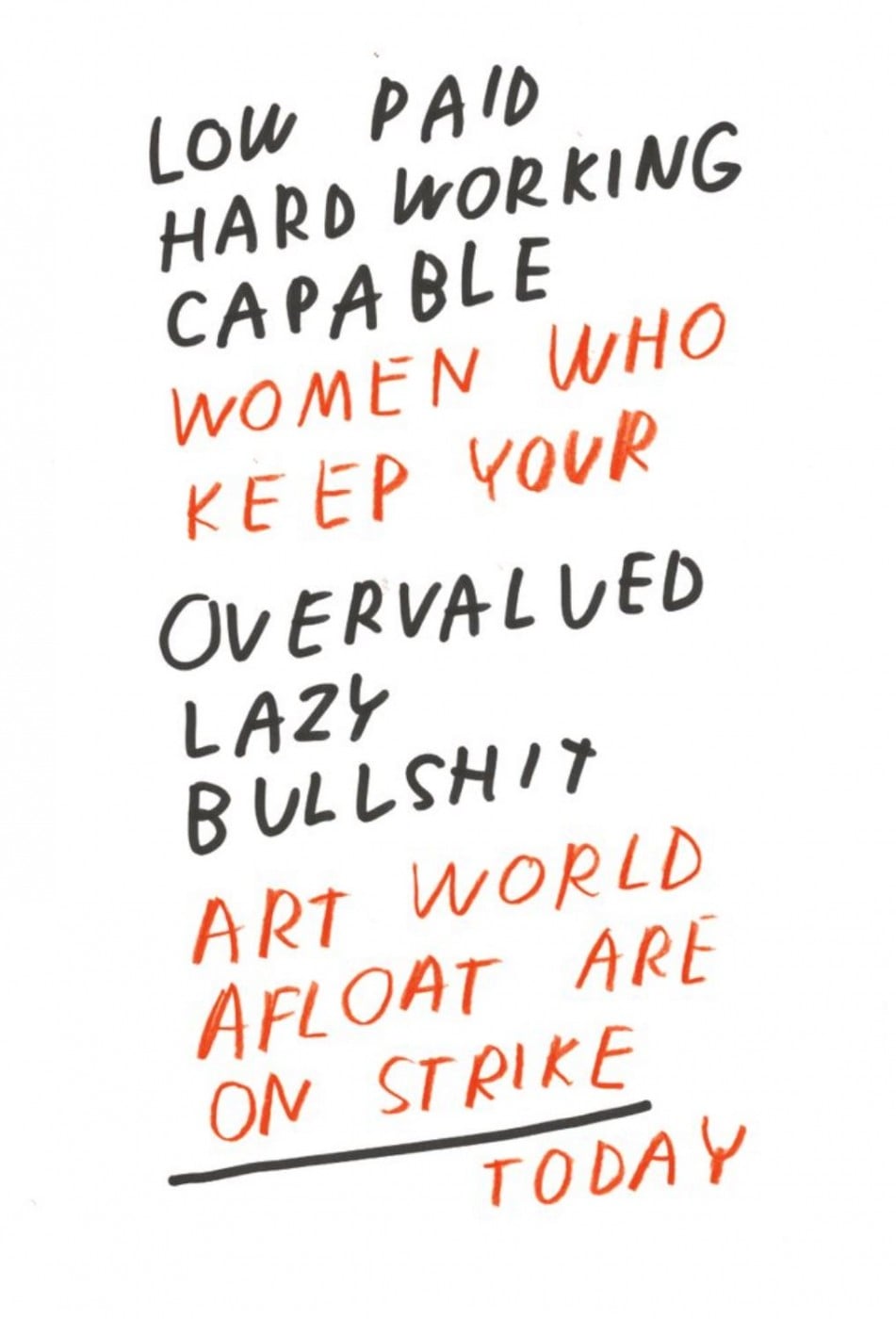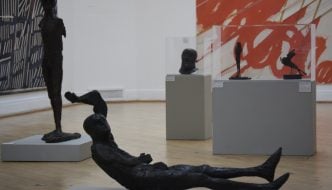
Courtesy: www.womenstrike.org.uk
This International Women’s Day, March 8th, women across the world are withdrawing their labour from workplaces, homes and communities in protest of the violence and inequality perpetrated against women everyday. The Women’s Strike aims to draw attention to the women’s work which props up society, and which is often performed for free or in unsafe conditions as part of the role of ‘woman’: from home-maker to mother to sex worker. The strike is supported by groups including Sisters Uncut East London, Action for Trans Health and Verso Books. It is a show of solidarity between women – ‘women of colour, indigenous, working class, disabled, migrant, Muslim, lesbian, queer and trans women‘ – and of the strength women hold when we organise collectively.
This year, #MeToo and #TimesUp have become headline grabbing movements, but surviving the abuse these movements confront has always been bound up with the common experience of womanhood. The radical action of the Women’s Strike exposes the processes of unrecognised, feminised labour which structure our workplaces, our social lives, our love lives, sex lives and homes. The strike is an opportunity to ‘meet each other on the streets and strike against a system of power that keep us isolated and divided from one another‘.
The Women’s Strike’s analysis is particularly acute in the arts. The institutionalised arts survive through the precarious and insecure labour of zero hours contracts, freelancing, and the industry standard practice of unpaid internships, exhibition for ‘exposure’ and the ‘portfolio careers’ (read: unreliable) of many arts workers. This is a blight against the whole sector, but falls particularly hard on those with caring and family responsibilities – a role that disproportionately falls to women. What’s more, the recent exposure of sexual abuse in the arts came as ‘no surprise’ to the women who have been surviving and reporting this abuse long before #MeToo sent their struggle viral.

Courtesy: www,makeitclear.eu
Among the supporters of the Women’s Strike are Birmingham galleries Grand Union, The GAP and Eastside Projects. On March 8th, Eastside host a banner making breakfast, closing their doors and joining the protest planned in the city centre Victoria Square. Keep it Complex – a collaborative organisation which confronts political issues through ideas and action – uses art to start conversations about pressing issues from cultural hegemony to climate change. They have produced banners and badges specific to institutions/art workers who join the strike, with messages such as ‘artist on strike’, ‘admin assistant on strike’ and ‘curator on strike’.

Courtesy: www.womenstrike.org.uk
This International Women’s Day, art institutions will roll out their yearly tours, events and lectures that offer some brief respite to the domination of our art history and national collections by white, male artists. The gendered art canon, so searingly critiqued by feminists from bell hooks to Griselda Pollock to Linda Nochlin, persists, but the Women’s Strike takes aim at the parallel issue of gendered labour and inequality in the (art) world of work. The strike action is about more than the art world, but in a sector that often markets itself as left-leaning, the insidious labour practices that sustain it seem even more bitter.
The Women’s Strike asks women to make visible the work they do and the conditions they do it in. Withdrawing labour is a powerful message, currently being used to fight various industrial disputes, but this strike is organised outside the trade union model. It draws energy from the everyday solidarity that exists between women, from sharing the stories of strength that constitute womanhood and from making the collective claim that women’s work deserves to be valued.
You can donate to the Strike Fund here, join events on March 8th in London, Manchester, Cardiff and other cities, or show solidarity by wearing red. Follow Women’s Strike for more information.
Filed under: Art & Photography, Politics
Tagged with: #MeToo, #TimesUp, International Womens Day, Women in the Arts, Women's Strike



Comments